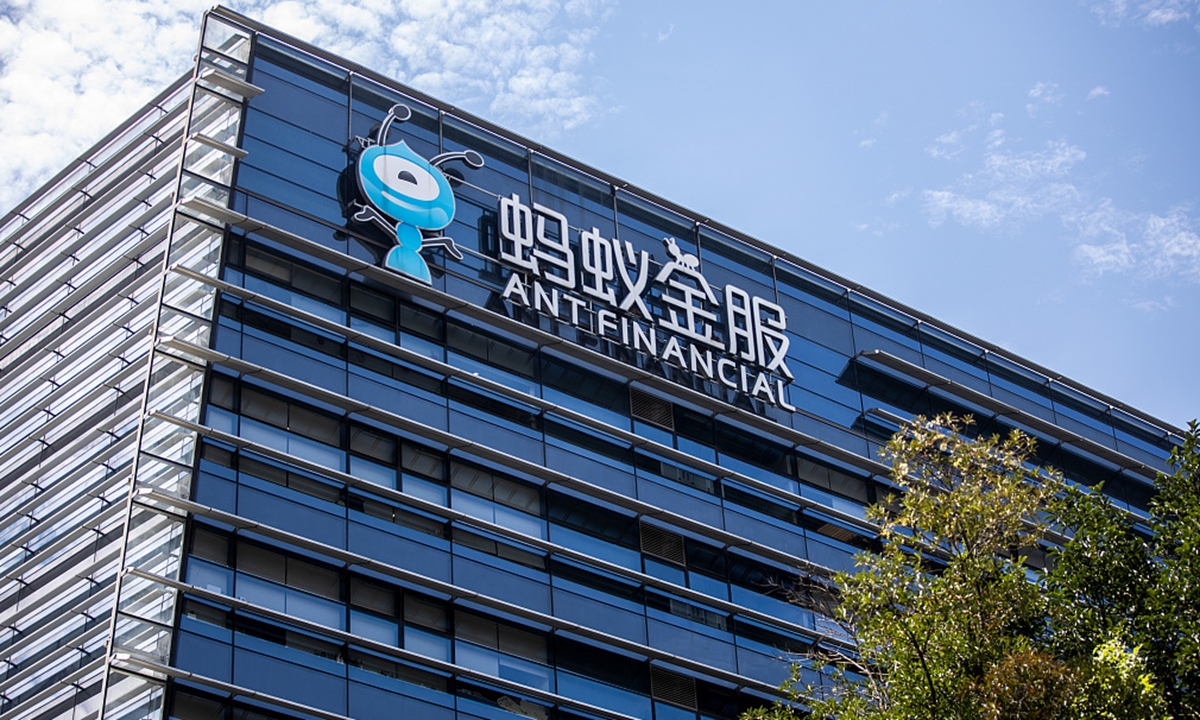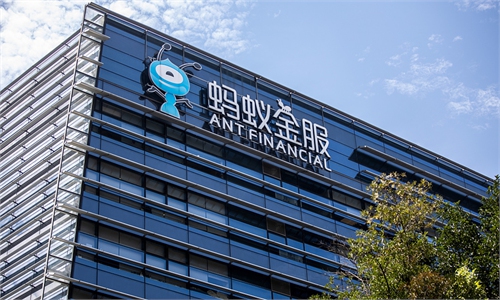
Ant Group Photo:VCG
Chinese fintech giant Ant Group will raise $34.5 billion in dual IPOs in Hong Kong and Shanghai after setting its prices for its shares on Monday, championing the biggest IPO in history.
The company's Shanghai-listed shares are priced at 68.8 yuan ($10.26) each. The goal for Ant is to raise 114.9 billion yuan through the IPO on the A-share market.
The price will make Ant's valuation soar to $313 billion, larger than major banks such as Goldman Sachs, or China's ICBC.
The price in Hong Kong has been set at HK$80 ($10.32) each, and the shares are expected to start trading on November 5, though it did not reveal when it would start trading at the Shanghai exchange.
Alibaba Group is expected to hold 31.8 percent of Ant's equity, or 31.2 percent if the underwriters subscribe for additional shares under the A-share issue and the H-share issue, the company said on Monday.
According to media reports, the institutional portion of the H-share offering was over-subscribed. Most of the orders were valued at more than $1 billion.
For the first time, Ant Group revealed that China's Social Security Fund invested an additional 7 billion yuan to subscribe for more than 100 million Ant shares, and hence it becomes the second-largest strategic investor after Alibaba.
Chen Wenhui, vice chairman of the National Council for Social Security Fund, said on Sunday the fund is actively participating in Ant's IPO.
Though reportedly under consideration by the Trump administration for inclusion on the US government's trade blacklist, Ant Group is steadfast in pursuing its dual IPOs in Hong Kong and Shanghai.
"Ant Group's business is primarily in China, and we are excited about our growth prospects in the China market. Our mission is to contribute to economic growth and job creation through serving ordinary consumers and small businesses," the company said in a statement sent to the Global Times previously.
The company gets less than 5 percent of its revenue from outside China, it said.
Global Times

